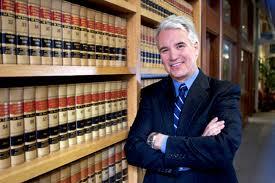The Mirkarimi case has taken another strange turn: The district attorney, George Gascon, just told the Chronicle that he doesn’t think the sheriff really thinks he’s guilty, and wants to raise that at his sentencing March 19.
I find this pretty unusual and remarkable. Whatever you think of the Mirkarimi case (and there are plenty of different opinions), the guy pled guilty to a fairly serious crime — and Gascon’s staff negotiated the plea deal with Mirkarimi’s lawyers. Why is he talking about messing around with the situation at this point?
Well, according to the Chron, Gascon was responding to a Matier and Ross column in which the sheriff acknowledged that he owes some hefty legal bills and that the cost of defending himself, and the cost to his family, was a factor in his guilty plea. Gascon is taking that as a sign that Mirkarimi maybe still thinks he’s innocent:
“There is a guilty plea here and I know there’s almost an attempt (by Mirkarimi) to deny that this has occurred: ‘I didn’t really do this. I’m being forced to do this.’ That’s very concerning to me, to be very honest with you,” Gascón said in a meeting with The Chronicle editorial board.
That’s a fair amount of extrapolation — Mirkarimi never told Matier and Ross that he’s innocent, although (like most criminal defendants) he maintained that position all the way up to the plea bargain. That’s what happens in a court case; the accused pleads not guilty, says he or she will fight the charges, proclaims innocence — and then, in the vast majority of the cases in the U.S. criminal justice system, eventually cops a plea.
Why? There are lots of reasons. The New York Times had a fascinating piece on this March 10. You might think you’re innocent, but won’t get a fair trial. You might be innocent, but fear that you can’t prove it and you don’t want to take the risk of the harsh sentence you might get if you lose. You might just decide that it’s better to accept some degree of punishment instead of dragging the case out. You might really be guilty, but not in the way the original charges read. You might be guilty as hell; you just said you were innocent because you were waiting for a good plea deal. This is how the criminal justice system works in the United States.
I called Gascon to talk about this, and he started off by saying, as he did in the meeting with the Chron ed board, that “we’re not accustomed to accepting a guilty plea from someone who isn’t guilty.” If that’s really the case, then he’s the only district attorney in the country with that policy. When we talked a bit further, he made the point that domestic violence is a special case: “When the defendant goes through counseling, they have to admit responsibility,” he said. “I want to make sure he understands what a guilty plea is and what it means.” Which is valid — I agree that step one in any sort of anger-management or DV program is taking responsibility for your actions. But didn’t this all come up when Gascon’s staff first cut the deal? Isn’t it a little late now to have second thoughts?
Mirkarimi has already agreed to go to counseling and take a domestic violence class. I talked to his lawyer, Lidia Stiglich, and she told me that she was “at a little bit of a loss. The sheriff accepted responsibility. We have a plea agreement and a disposition, and I don’t see any legal reason why it wouldn’t go forward as proposed.”
I agree, and have said in public many times, that Mirkarimi has to take responsibility for his actions, has to tell the public what really happened that day, and, like any other defendant who enters domestic violence counseling, admit that he’s done something wrong and that it wasn’t at all OK or excusable. That’s all part of the package.
I just don’t get what the district attorney is up to.

